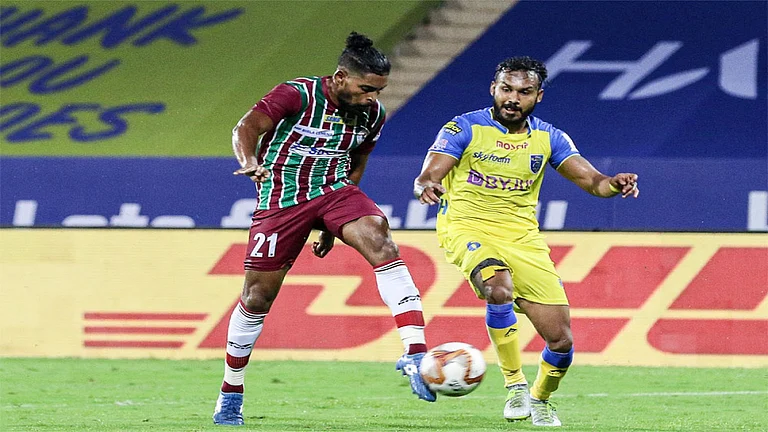I was the National President of the National Students Union of India (NSUI) from 1988 to 1993 and then President of the Indian Youth Congress (IYC) from 1998 to 2000. I was also the first and only Asian to be elected as President of the International Union of Students (IUS) in 1992 at Larnaca, Cyprus.
I therefore feel that I am eminently qualified to reflect on the erosion of organisational resilience and stultification of cadres across political parties, as I have observed this attrition unfold over the past four decades.
There was an era—not too long ago, if you take the grand sweep of time as your barometer—that all Indian political parties had a robust and vibrant grassroots presence. From the extreme left to the quasi-religious right, across political parties and other dispensations, organisations had an army of ideologically committed cadres. Whatever may be their electoral salience, they had women and men in the field to carry their message to the masses.
This is because unlike Western political establishments, political parties in Asia, Africa and Latin America were modelled along the erstwhile Soviet and Eastern European communist paradigm. A template still followed by the Communist Party of China—the ubiquitous CCP.
Like standing armies, many nations like India that were newly liberated from the vestiges of imperialism and colonialism in the late 1940s and 1950s—were politically, sociologically and culturally inured in the culture of standing political parties, underpinned by whole-timers—cadres who worked whole time for their respective political parties—in part also because of the legacy of aggressive national liberation struggles.
However, all this started to change, especially in the global south, with the advent of neo-liberal economics in the aftermath of the collapse of the Soviet Union and Eastern Europe. As countries started aligning themselves with the reality of a unipolar world and the Washington Consensus, liberalisation of national economies and their consequent globalisation brought in its wake a plethora of new economic opportunities, especially for a generation that was coming of age at that particular inflection point in time.
However, this realignment also rang the death knell of ideology, and the hardest hit by this phenomenon were political parties that were anchored to the left of the Centre. That included the Communist parties, whose shrinking footprint only shrivelled further. Ironically, the other party that was hit equally hard by the collapse of the Soviet experiment was the Indian National Congress.
ALSO READ: Unfailing Commitment Of CPI(M) Red Brigades
Though it was a Congress government that oversaw the reset of the Indian economic trajectory, till date the party has not been able to politically re-align itself with its transformed economic philosophy that swung from the “State being at the commanding heights of the economy” to a market-oriented economic paradigm. This ideological ambiguity soon started reflecting upon the efficacy of its cadre, producing organisations, namely the NSUI and the IYC.
Young people who started coming of age during the heyday of consumerism from late 1990s onwards, also had far more economic opportunities available to them than their immediate peers in the late 1980s. This soon created an apolitical class of young people who only began to articulate their political opinions with the advent of social media, but till date, continue to remain disinterested in any structured form of political mobilisation.

This, coupled with a growing cynicism for political processes, has further accentuated the disillusionment and disenchantment with politics at large. The manufactured social, cultural and religious divide, colloquially called polarisation, has brought in its wake a class of lumpens who thrive on bigotry and hate that further drives the educated and thinking sections away from the political milieu.
The NSUI was founded in the year 1970-71 as an instrument to carry the socialistic orientation of the newly formed Congress (R) (Requisition), after the Indian National Congress split in 1969. Under the leadership of Prime Minister Indira Gandhi, the Congress (R) had embarked on an ambitious programme of bank nationalisation and abolition of privy purses.
There was a need to carry the idealistic slogan of “garibi hatao” to the young minds in schools, colleges and universities across India. Equally, there was a need to counter the RSS-backed Akhil Bhartiya Vidyarthi Parishad (ABVP) and the socialist-aligned Samajwadi Yuvjan Sabha (SYS) or the Young Socialist League in university and college campuses.
The NSUI really came into its own in the mid-1980s and had its heydays till about the mid-1990s, before going into a slow tailspin. Its most significant achievement till date was getting the universal voting age lowered from 21 to 18 years in 1988, during my presidency.
ALSO READ: RJD: Time For Reappraisal Of Party Cadres
Similarly, though the IYC functioned as a department of the INC from 1947 to 1971, it grew its own identity after the Indore session of the INC, when it was given the status of a frontal organisation. The IYC had its heyday in the post-Emergency period, from 1977 to 1980, when it became the sword arm of the struggle to return the Congress to power.
Though disbanded in 1977, it was soon resuscitated, first as the Youth Forum, before soon morphing back into its earlier avatar. In the General Elections of 1980, a large number of Youth Congress activists became MPs, which added to its profile.
ALSO READ: The Slow And Steady Decline Of BSP
Both NSUI and IYC chugged along through the 90s and the early 2000s, playing their role as the vanguard and rapier of the Congress—an era that unfortunately also saw the party’s footprint shrink nationwide.
It was in 2007, however, that the fateful decision was taken which would have a dramatic impact on the fortunes of NSUI and IYC. The decision was to hold internal elections to elect people to leadership positions in both organisations.
Though a well-intentioned decision grounded in a deeply democratic disposition, it soon became a process that consumed the collective energies of the leadership as well as the cadre of both organisations. It has made them both focused primarily inwards, concentrated on an internal electoral template. Not only did the entry barrier for newcomers get raised—membership drives and elections are expensive propositions—more importantly, their outward focus on fighting the political adversary got stilted.
While during the second Covid wave, especially in Delhi, the IYC did perform yeoman’s service to the community, its ability to conceive, conceptualise, launch and sustain any nationwide movement or struggle—as the NSUI had done in 1990 during the struggle against the Mandal Commission recommendations—was diminished, if not knee-capped.
The NSUI too, has lost much of its earlier vitality and sheen. However, I feel these can be restored in both organisations by turning back the clock and restoring the status quo ante that prevailed before 2007 with regard to their appointment practices, or by rationalising entry barriers that are intrinsic to the electoral model currently being pursued.
In conclusion, the death of ideology in Indian politics, coupled with the unexpected outcome of an organisational reorientation, has impacted the entry of talented young people from working-class backgrounds, who would earlier flood the ranks of the NSUI and the IYC.
(This appeared in the print edition as "Death Of The Political Cadre")
(Views expressed are personal)
ALSO READ
Manish Tewari is a lawyer, MP and former Union minister of Information and Broadcasting
























